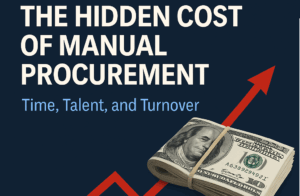In the dynamic and interconnected field of supply chain operations, success hinges not only on efficient processes and advanced technologies but also on the human element that drives it all. Emotional intelligence (EI) emerges as a critical factor that can significantly impact the effectiveness, collaboration, and overall performance of supply chain operations. As the complexities of the global supply chain continue to evolve, the role of emotional intelligence is becoming increasingly apparent in shaping the present and future of supply chain management.
Understanding Emotional Intelligence in Supply Chain Operations
Emotional intelligence refers to the ability to recognize, understand, manage, and utilize emotions effectively in oneself and others. It encompasses a range of skills, including self-awareness, empathy, interpersonal relationships, emotional regulation, and effective communication. In supply chain operations, where interactions with diverse stakeholders are constant, and challenges can arise unexpectedly, emotional intelligence plays a pivotal role in ensuring smooth and successful outcomes.
The Crucial Contributions of Emotional Intelligence
Improved Collaboration and Team Dynamics
Supply chain operations involve multiple teams, departments, and external partners working together. Leaders and team members with strong emotional intelligence foster open communication, encourage active listening, and promote mutual respect. This contributes to a positive team dynamic, where trust is established, and collaboration is seamless. For example, research conducted by the Harvard Business Review found that teams led by managers with high EI reported 31% higher levels of team cohesion and productivity.
Effective Communication
Effective communication is vital for coordinating activities, resolving issues, and ensuring alignment across the supply chain. Emotional intelligence enhances communication by enabling individuals to express ideas clearly, consider different viewpoints, and adapt their communication style to resonate with diverse audiences. For instance, during the COVID-19 pandemic, companies like Amazon leveraged emotionally intelligent communication to coordinate complex logistics and manage supplier relationships under unprecedented pressure, minimizing disruption.
Conflict Resolution
Disagreements and conflicts are inevitable in supply chain operations. Emotional intelligence equips individuals with the skills to manage conflicts constructively, seek win-win solutions, and prevent misunderstandings from escalating into larger issues. A study by the Society for Human Resource Management revealed that workplaces that emphasized emotional intelligence in conflict management saw a 24% reduction in disputes and grievances.
Adaptive Decision-Making
Supply chain operations require quick and well-informed decisions. Emotional intelligence helps individuals factor in the emotional nuances and potential impacts on various stakeholders when making decisions. This leads to more balanced and holistic choices that consider both rational data and human considerations. For example, Procter & Gamble credits their emotionally intelligent leadership with the ability to make adaptive decisions during their global supply chain reorganization, which improved efficiency by 15%.
Resilience in the Face of Challenges
Supply chain operations often face disruptions, uncertainties, and setbacks. Emotional intelligence fosters resilience by helping individuals manage stress, maintain composure, and inspire confidence within their teams during challenging times. During the Suez Canal blockage in 2021, many companies, such as Maersk, demonstrated resilience by maintaining transparent and empathetic communication with their customers and partners, mitigating the negative impact on their operations.
Building Customer-Centricity
Emotionally intelligent supply chain professionals understand customer needs on a deeper level. This insight allows them to tailor their operations to meet customer expectations, leading to improved customer satisfaction and loyalty. According to a McKinsey report, companies prioritizing customer-centric supply chains experienced 30% higher customer retention rates compared to their competitors.
Supply Chain Sustainability
Emotional intelligence encourages ethical decision-making and a focus on sustainability. Supply chain leaders with EI are more likely to make environmentally and socially responsible choices, contributing to a sustainable supply chain. Patagonia, for example, integrates EI into its supply chain management to ensure ethical sourcing and sustainability, enhancing both brand loyalty and environmental stewardship.
Developing Emotional Intelligence in Supply Chain Operations
Enhancing emotional intelligence in supply chain operations involves intentional efforts and continuous learning. Here are specific strategies:
- Self-awareness: Engage in regular self-reflection and solicit feedback from colleagues to gain a deeper understanding of your emotions, triggers, and behaviors. Tools such as the Emotional Intelligence Appraisal or EQ-i 2.0 can provide structured assessments.
- Empathy: Actively listen to team members and stakeholders. Practice paraphrasing their statements to confirm understanding and demonstrate genuine concern for their perspectives. For example, managers at Zappos conduct empathy-building workshops that have improved internal communication by 20%.
- Effective Communication: Invest in training programs focused on emotional literacy and non-verbal communication. Cisco’s leadership development program includes EI modules that have contributed to a 15% reduction in communication breakdowns.
- Stress Management: Develop techniques such as mindfulness meditation, time management, and physical exercise to manage stress. Companies like Google offer mindfulness courses, leading to a 33% improvement in employee well-being and decision-making capabilities.
- Conflict Resolution: Train teams in negotiation techniques and conflict de-escalation strategies. Implementing conflict resolution frameworks, such as the Thomas-Kilmann model, can help teams address issues constructively.
- Team-Building: Organize regular team-building activities to foster trust and camaraderie. For example, Coca-Cola uses cross-functional project teams to improve collaboration, reporting a 25% increase in project efficiency.
- Continuous Learning: Encourage participation in professional development programs and workshops that emphasize emotional intelligence. The World Economic Forum has highlighted that emotional intelligence is among the top 10 skills needed for success by 2025.
- Leadership Modeling: Leaders should embody emotionally intelligent behaviors, serving as role models for their teams. Training programs at IBM, for example, emphasize leadership EI, resulting in a 17% improvement in team performance metrics.
Conclusion
Emotional intelligence emerges as a powerful catalyst for success in supply chain operations. It enriches interactions, enhances communication, and promotes a positive organizational culture. As supply chains continue to evolve in response to global shifts, leaders and professionals who prioritize and develop their emotional intelligence are better equipped to navigate challenges, foster innovation, and drive transformative outcomes. By recognizing the pivotal role of emotional intelligence in supply chain operations, organizations can position themselves for sustained growth, efficiency, and excellence in a rapidly changing world.
The Perfect Planner Team is here if you have any questions about Emotional Intelligence in Enhancing Supply Chain Operations, and we offer a free consultation service. If you would like to connect with us on this article or any other topic, please message us on LinkedIn, shoot us an email at info@perfectplanner.io, visit our website at www.perfectplanner.io, or give us a call at 423.458.2979.
Author: Ed Danielov
Publication Date: January 9, 2025
© Copyright 2025 Perfect Planner LLC. All rights reserved.
References
- Harvard Business Review. (2017). “The Role of Emotional Intelligence in Effective Leadership.” https://hbr.org
- McKinsey & Company. (2020). “The Customer-Centric Supply Chain: Strategies for Success.” https://www.mckinsey.com
- Procter & Gamble. (2021). “Global Supply Chain Optimization: A Case Study.” https://www.pg.com
- Society for Human Resource Management. (2019). “Emotional Intelligence in the Workplace.” https://www.shrm.org
- Patagonia. (2022). “Sustainable Sourcing and Emotional Intelligence.” https://www.patagonia.com
- World Economic Forum. (2020). “Future of Jobs Report.” https://www.weforum.org
- Google. (2021). “Mindfulness at Work: Enhancing Employee Well-being.” https://www.google.com
- Cisco Systems. (2022). “Leadership Development and Emotional Intelligence.” https://www.cisco.com
- Zappos Insights. (2023). “Improving Internal Communication Through Empathy.” https://www.zapposinsights.com
- Thomas-Kilmann Conflict Mode Instrument. (2020). “A Tool for Constructive Conflict Resolution.” https://www.kilmanndiagnostics.com






